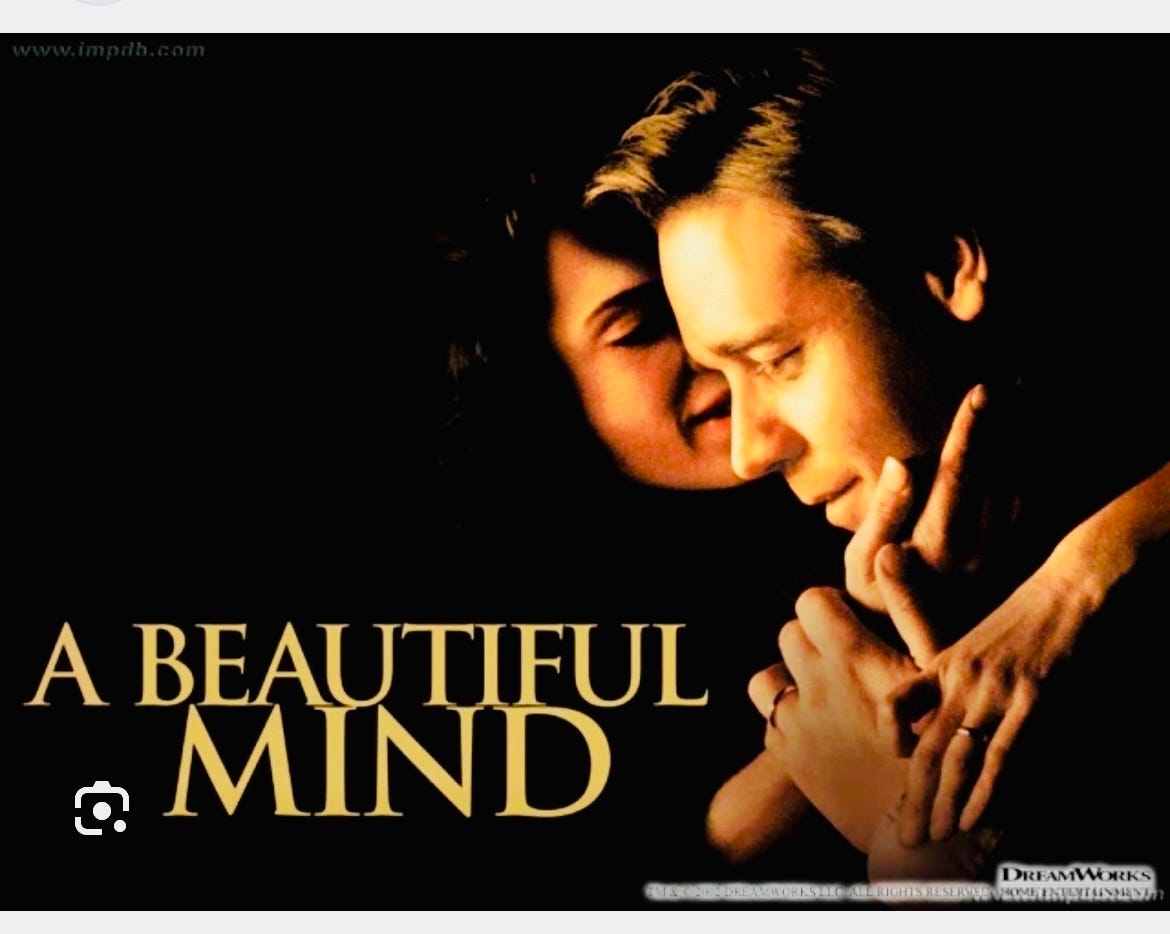Revisiting A Beautiful Mind.
Please note, this post does contain spoilers.
It’s been a while since I watched this intriguing and touching movie. It first came out in cinemas in 2001 and so this was a year after Russell Crowe’s hit, Gladiator. Whilst I missed Gladiator at the cinema, I watched Crowe’s second masterpiece, that was A Beautiful Mind. I loved it and was stunned by his performance.
Russell plays the late mathematician John Nash who was a student and teacher at Princeton University. He was a genius who won the Nobel prize for his work in Economic Sciences. Unfortunately, John Nash also suffered from paranoid schizophrenia. In the movie, this is portrayed via John having imaginary friends and conversations. At his worst, John believes he’s going to be captured by Soviet spies.
There are numerous differences between the movie and real life story of John Nash. I have linked to the Wikipedia page that goes into some of this.
John’s wife is played by the gorgeous Jennifer Connelly. If John is the troubled but good man, she is the determined woman who saves him from himself. It’s a romanticised version of the real story but as a portrayal of love equating strength, the dynamic and the movie work very well.
It is John’s will to be better and to not further mess up his relationship with his family that makes him realise an important aspect of his schizophrenia. He constantly sees an imaginary girl but as he says, she never gets older and therefore, she can’t be real. So, John has two choices. He can either go to the hospital or suffer daily embarrassments but stay home with his wife. On the condition that John won’t harm her and that they already have her mum and sister to help with their son, the couple decide the latter.
The heart and mind cannot cure disease and in the movie John does keep seeing his imaginary friends and foes. However, as John is able to stick to the plan of rehabilitation in the way of attending Princeton university every day, despite some setbacks, he starts to ignore and differentiate between what is in his imagination and what is real. With time, the figments of imagination also start to ignore John. I think this is relatable to anyone who has suffered with a mental issue and has learned how to manage it; it’s always there but it’s possible for it to become less overwhelming.
As I said earlier, Russell Crowe’s performance as John stunned me. He brought a vulnerability as well as a rugged masculinity to the role. I think it was his character’s solitude that I could relate to, to some extent. I too know where I’m comfortable. With John it was his maths and with me it’s my writing. Our minds seem to come alive in our optimum environments and we feel free in them. Face to face with people, there’s a whole ball park of rejection that both John and I have experienced. For me, this rejection contributed to a social anxiety, with John this solitude caused by rejection appears to exacerbate his schizophrenic delusions.
Still, humour becomes a tool in which the more odd ball amongst us connect to other people. That and an authentic, raw kind of honesty that we have to work at toning down. I’m sure numerous people can relate to this or understand it at least. The difference between John Nash and I, is that he was a genius who certainly had a beautiful mind. The similarity is that we both let love into our hearts.



I’ll be posting my thoughts on the above video tomorrow.
This may interest you; an accurate representation of schizophrenia?
https://youtu.be/NonwXc7_kEM?si=BUJopqwTKpxBs8CH